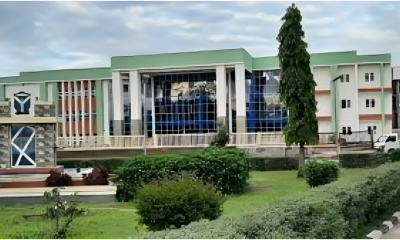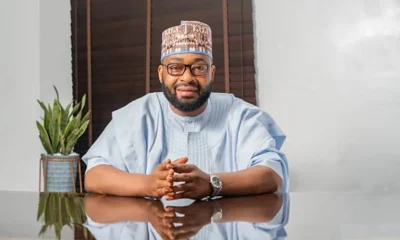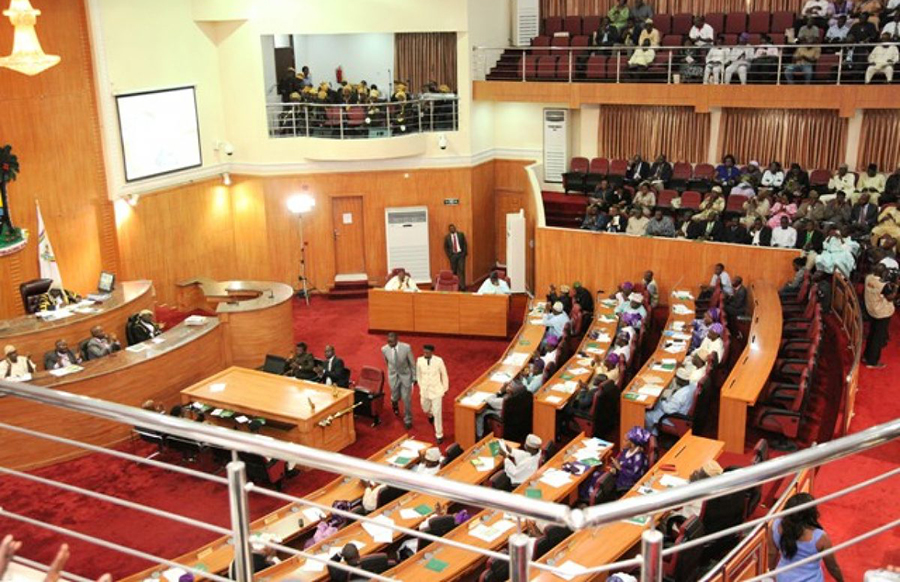Environment
Open Defecation: Nigeria Needs 3.9 Million Toilets Annually -UNICEF

The United Nations Children’s Fund (UNICEF) says Nigeria will need to build no fewer than 3.9 million toilets annually to meet the open defecation-free target by 2025.
Dr Jane Bevan, UNICEF Chief of Water, Sanitation and Hygiene (WASH), said this on Monday at the opening of a two-day Maiden Toilet Business Owners Conference in Abuja.
Bevan said that current toilet construction in the country stood between 180,000 – 200,000 toilets annually, describing it as inadequate.
She said the conference was timely as toilet business owners were key to ending open defecation challenges in Nigeria.
According to her, there is the need to do things differently by creating demand for toilets.
The private sector could play huge roles for sustainability and strengthening sanitation markets in the country.Bevan, quoting the 2021 WASH National Outcome Routine Mapping on Nigeria’s sanitation status, said 48 million people practice open defecation, while 95 million were without access to basic sanitation services.
“About 1.3 per cent of GDP or N455 billion is lost annually due to poor access to sanitation – health, health care savings and productivity.
“Every dollar invested in water and sanitation results in economic benefits ranging from 3 dollars to 34 dollars.
“Nigeria cannot continue business as usual or it will miss the target of 2025 and 2030. There is need to strengthen and scale up proven strategies to reach the country’s goals.
“The private sector must work closely with all tiers of government and communities to actively create sustainable solutions to address the sanitation needs of unserved and underserved communities and help grow capital investment and human capital.’’
Dr Didi Walson-Jack, Permanent Secretary, Federal Ministry of Water Resources, expressed optimism that Toilet Business Owners (TBOs) would complement government’s effort towards realisation of the objective of ending open defecation in Nigeria.
According to her, Nigeria is ready for business and the market is expansive for quicker and bigger returns on investment as long as we are prepared to think outside the box.
The permanent secretary noted that the outcome of the conference would reinforce other existing initiatives in achieving the national and global goals for the water, sanitation and hygiene sub-sector.
“TBOs are part of the Micro, Small and Medium-sized Enterprises (MSMEs) that would help in achieving the 2030 Agenda for Sustainable Development.
“This is particularly noteworthy in Nigeria where the SMEs have contributed approximately 48 per cent to the national GDP over the last five years as reported by the National Bureau of Statistics (NBS).
“Moreover, the SMEs in Nigeria accounted for 96 per cent of all businesses in the country and employed 57.7 million people, representing 84.02 per cent of the workforce in 2016.
“I am therefore confident that with this level of SME participation in the economy, this conference will equip the participants with a better appreciation of the potentials of these enterprises for the Sanitation Sector.”
Earlier, Mr Chukwuma Nnana, Executive Director, Toiletpride Initiative, said one of the biggest challenges in realising an open defecation-free environment was the lack of enabling environment for these sanitation businesses to thrive.
Nnana, who is also the convener of the conference, said that TBOs and sanitation entrepreneurs were yet to be mobilised to their full potential.
The conference was designed to showcase and create awareness on the contributions of private sanitation enterprises in scaling up sanitation service delivery in Nigeria. (NAN)
Environment
First Lady Seeks Lasting Solution to Eradicate Environmental Pollution

The First Lady, Sen. Oluremi Tinubu has called for a lasting solution to eradicate environmental pollution caused by plastic wastes.
In her message to mark the year 2025 World Environment Day, with the theme ‘Ending Plastic Pollution’, in Abuja on Thursday, the first lady also advised people to curtail the way they consume food and drinks packaged in plastics.
“I join millions of Nigerians and the world in calling for urgent and united action to safeguard our environment.
Plastic pollution has become one of the most pressing environmental challenges of our time, affecting our health, our environment, and our future.“In Nigeria, we must rise to this challenge by changing how we consume packaged food items and how we dispose of plastic containers and bags.
“I particularly want to speak to our youths, the leaders of tomorrow, be it in schools or within our neighborhoods, each of you has a role to play in creating a cleaner, healthier and greener Nigeria,” she said.
Mrs Tinubu had recently promised to introduce environmental solutions clubs to schools through her NGO, Renewed Hope Initiative (RHI).
“I want to use this opportunity to introduce our students to two programmes that the RHI will be launching soon.
“First is the Environment Club for Secondary School Students and the Environment Society for Students in Tertiary institutions nationwide to help us clean up our environment and grow more trees.
“Second is the “Flow with Confidence” for our girls in rural communities.
“This programme is to provide one year’s supply of disposable sanitary pads to our adolescent girls to support them to remain in school during their menstrual cycle,” She said.
NAN further reports that some of the functions of RHI environmental clubs in schools would include raising environmental awareness; fostering social and life skills; empowering students to take action and promoting sustainable behaviours.
The clubs can also enhance critical thinking and creativity, encourage healthy lifestyles, and strengthen communities.
The club would encourage students to participate in various environmental projects, like tree planting, recycling, and garden projects, gaining practical experience and deeper understanding.(NAN))
Environment
Billboard accident: Abia Govt. to Offset Victims’ Hospital Bills – ABSAA Official

Abia Government says it will offset the hospital bills of the Aba Billboard accident victims.
Mrs Victoria Onwubiko, Managing Director, Abia State Signage and Advertising Agency (ABSAA) made this known on Thursday in Aba at the Salad Market entrance, the site of the accident.
A big billboard fell on some passengers in five tricycles in Aba on Wednesday, following a boisterous wind, killing one person and injuring seven others.
Onwubiko said the governor had given the necessary approval for procedures regarding the victims’ treatment without hindrances.
“So, we are glad there are not going to be any more deaths; from what we have seen, the victims in the hospital are recovering and doing well.
“We understand that about eight persons were involved in the accident; five are at the Abia University Teaching Hospital, two have been discharged and one is died,” she said.
Onwubiko added that the governor had sent his Chief of Staff to the hospital for the proper management of the victims at ABSUTH, Aba.
According to her, there is no hoping that any one of them will go to the court as the state government is doing everything to take care of them.
He said ABSAA would ensure such accidents did not reoccur noting that henceforth the agency would inspect every advertising site in the state.
“We are going to ask the owners of sites like this to give us the technical drawings with which they built their sites.
“If we don’t see them, the bill board will come down for them to redo it to ensure safety,” she said.
The ABSAA MD said every site, whether high or low, which is not sound, will go down.
Mr Chinedu Nwibo, an eye-witness and a vulcaniser for tricycle operators, said there were seven persons at the entrance of the Salad Market on that Wednesday when the accident occurred.
“We were inside a little makeshift shop I had set up for my work when the rain started on Wednesday.
“The wind was very boisterous and some of the tricycle operators went into their tricycles to stay for the rain to stop.
“No sooner had they ran into their tricycles than a big iron pipe used to hoist a billboard fell on them.
“One Destiny Uguru, 27, from Izzi in Ebonyi state died from the accident while seven persons sustained injury,” he said.
Nwibo called on the government to come to the aid of the victims especially by replacing their tricycles.
“The man that lost his life has an expectant wife and two children,” he said. (NAN)
Environment
FG, Partners Urged to Act On Rangeland Conservation

The Federal Government and partners have been urged to take decisive action to protect and restore rangelands, safeguard pastoralist communities’ livelihoods, and enhance climate resilience in dryland regions.
The call was made in a communiqué issued at the conclusion of the 5th International Conference on Drylands.
The conference, themed ‘Promoting Sustainability and Resilience of Rangelands: Present and Future Outlooks’, was organised by the Centre for Dryland Agriculture at Bayero University in Kano and took place from May 6 to 8, 2025.
The three-day conference brought together over 300 participants, including scientists, researchers, policymakers, development partners, and private sector representatives.
The articipants urged governments to develop and implement comprehensive, participatory, and evidence-based legal frameworks prioritizing sustainable rangeland management.
These frameworks should recognise, protect, and support traditional knowledge and practices of pastoralists, ensuring equitable access to land and natural resources.
Secure land tenure and fair resource governance are crucial for promoting peaceful coexistence and preventing land-use conflicts.
The conference recognised the critical role of women and youths from pastoralist communities in driving resilience and sustainability.
The conference also called for increased investment in capacity building, active participation in decision-making processes, and support for income-generating opportunities and sustainable resource development projects.
The conference emphasised the need to scale up public and private sector investments in climate change adaptation strategies, sustainable land management technologies, and diversified livelihood initiatives.
These investments should be complemented by demand-driven research and the promotion of innovations that integrate indigenous knowledge with modern scientific approaches.
The conference urged international development partners and organisations to align their resources with the conference outcomes and enhance regional and global cooperation, particularly on transboundary issues.
The participants also advocated deeper engagement with global initiatives such as the Vision for Adapted Crops and Soils (VACS) and the Africa Soil Initiative.
The conference concluded that the alarming degradation of rangelands, threats to pastoralist livelihoods, and fragility of dryland ecosystems demand urgent, collaborative, and sustained action.
The participants emphasised that achieving healthy rangelands was key to food security, ecological balance, and peaceful coexistence.
The conference brought together participants from 11 African countries, 13 Nigerian states, 17 academic institutions, and several international organisations.
It created a rich platform for knowledge exchange, policy dialogue, and regional collaboration.( NAN)

















